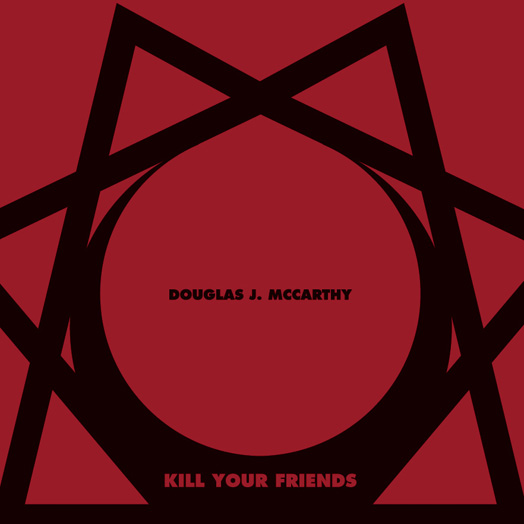Douglas J. McCarthy is one of Britain’s finest frontmen. With Nitzer Ebb, he took the suburban S&M that Depeche Mode flirted with and ran with it, creating an on stage persona that – with shirt and tie, aviator shades and slicked-back hair – is equal parts the evil T-1000 Terminator from Judgement Day and a horny businessman slipping furtively into a Dominatrix’s doorway. With German DJ Terence Fixmer he created something even more fierce – check out the track ‘Splitter’ for a harnessing of Essex keys-in-a-pot vibes with uncompromising techno.
While Nitzer Ebb’s comeback album Industrial Complex was very much a Quietus favourite of 2010, McCarthy’s first solo album after over a decade largely out of the music business contains many surprises. It often seems difficult for artists born during the EBM or synth pop bloom to stray from what they’re good at (never let the fuckers near an acoustic guitar), but by building on the fruity electronics, McCarthy and his producer, DJ Mark Bell, have taken his voice – estuarine, sneering, threatening, seductive – to interesting new places.
Most surprising is how restrained this is. Lyrically and musically we’re accustomed to hearing McCarthy deal with Electronic Body Music in a literal sense – throbbing, orgiastic basslines and a fair amount of singing about getting up to things while on one’s knees. Here, a drawing-back makes everything more lithe, such as the pleasingly loose rattling percussion of ‘Taken’ and ‘All Kinds Of Wrong’, the latter also delivering its funk and rocks-off breakdown in a far more accessible way than we’re accustomed to from Mr McC. ‘Find You’ is all light and Beatlesy, featuring not only lo-fi production and a great chorus, but also a sitary twang.
‘Death Is King’ suggests Factory Floor if they took a new house direction with gospel ‘oh oh’ backing vox and a synth line to please the old guard, while again being a bit of a killer pop tune. That’s nothing compared to ‘The Last Time’, a track so Saturday night it’s hard not to wonder why McCarthy didn’t simply think of the dollar and flog it to Simon Cowell. ‘Nothing After This’ has a smooth friskiness that you could imagine being reworked for the kind of Chelmsford nightclubs where Nitzer Ebb are highly unlikely to be on heavy rotation. That it also features a Western guitar tint and bits of abrasive guitar noise is evidence of just how cunning a track it is.
Of course there’s plenty to please the McCarthyite old school (‘Demon Prophet’ and ‘Move On’ are top-drawer Ebb menace), but it’s the pop moments – and the surprises such as the snide dub of ‘Evil Love’ or digital jazz in ‘Hey’ – that make Kill Your Friends an album that, perhaps unexpectedly, should be warmly welcomed into every home.


